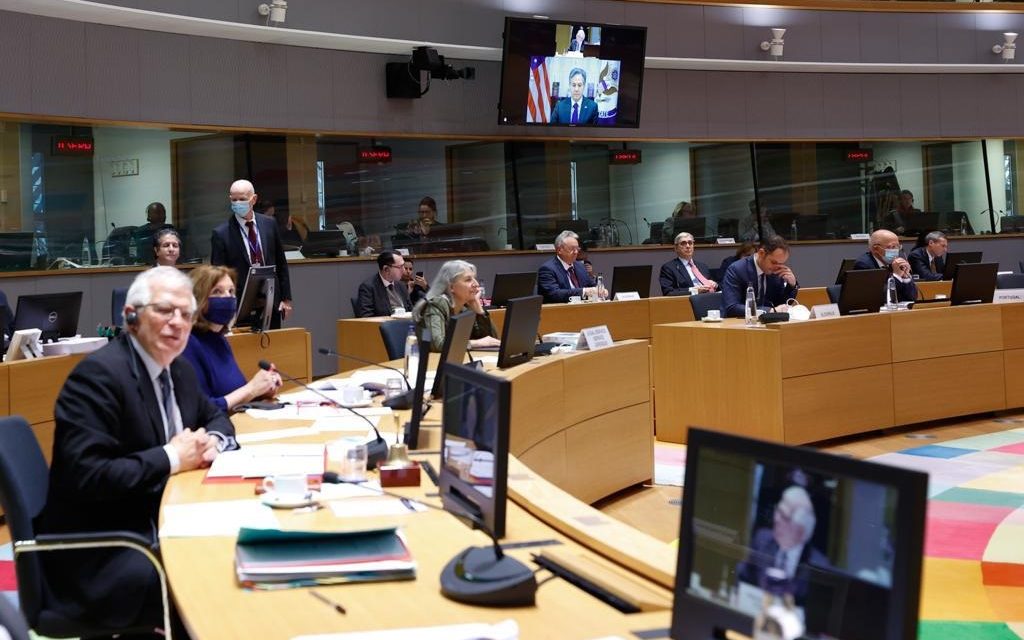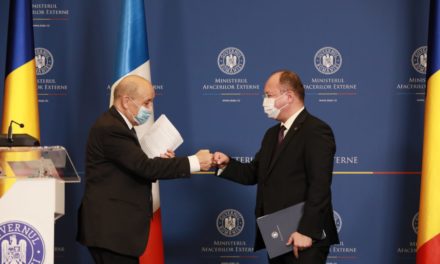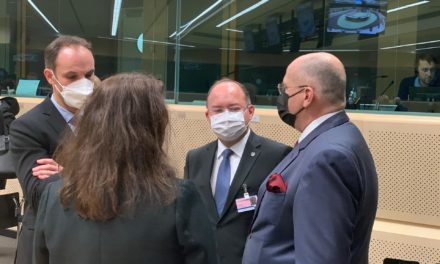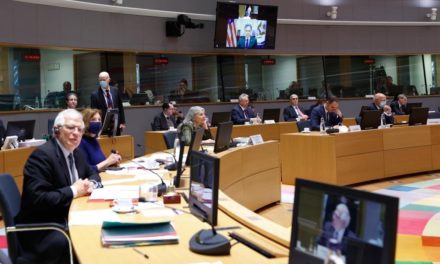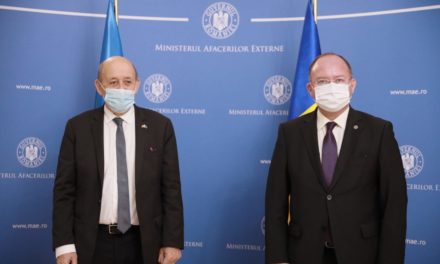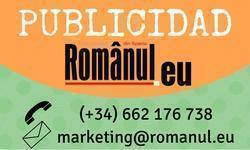Captura audio: http://www.mae.ro/node/58003
Moderator: Joining me now live is the Romanian Foreign Minister Bogdan Aurescu. Thank you for joining us today on Times Radio, Minister.
Bogdan Aurescu: Thank you for having me.
Moderator: How many refugees do you think have crossed into Romania so far and how many more you’re anticipating in the coming weeks or months?
Bogdan Aurescu: By now, more than 234,000 Ukrainian nationals have crossed the border from Ukraine and more than 72,000 Ukrainian citizens stay in Romania, as we speak. Almost 3,000 of them have already asked for protection as asylum seekers. This is beyond the number of other citizens from third countries who also crossed from Ukraine to Romania, and we have helped everybody to evacuate and to go back home safely to their countries of origin. We have also helped a lot of foreign missions in Ukraine to repatriate their personal, a lot of them crossed into Romania and then flew back home. So we are open to all Ukrainian and other countries’ citizens to evacuate safely. We have been coping, by now, with this very challenging situation, but the numbers are growing. We’ll see how many of them will come in the next days.
Moderator: What is the welcome like for those who are crossing into Romania from Ukraine? What are they coming in to?
Bogdan Aurescu: There are many mothers and children, almost a third of those Ukrainian citizens crossing into Romania are kids. We are trying to provide shelter, to provide food. The Government effort is quite consistent and we are also helped by the civil society in Romania, a large number of NGOs and regular Romanians who mobilized very well and they have provided assistance, food, medicine, everything that is needed for them to feel safe. The Government has created an online platform where all support offers for Ukraine are centralized.
We have also created, with the help of the European Commission, a hub in Romania, a logistic center to collect and transport to Ukraine international humanitarian aid, and we are working very hard on that. I think this would be a very helpful tool in order to provide to Ukraine the humanitarian aid which is so needed. I have heard the impressions of the Ukrainian MP that you’ve just had live and I think this is very much needed: to provide food, to provide medicine, to provide water and all that is needed for a country which is very much destroyed by the aggression of Russia.
Moderator: When you’re looking at the Ukrainians fleeing to Romania, you can cope with these numbers, but they do continue to rise, what assistance do you need from the international community? Is it financial or are you looking for other countries to relax their border policies and to take on their share?
Bogdan Aurescu: We are very much open to work together with our international partners, with the European Commission first, but also with the other EU member states. For the time being, as I have mentioned, we are coping with this wave of refugees but we are also very open to cooperate with other countries. And we have already facilitated the transit through Romania into Ukraine of humanitarian convoys from many countries in the world that are willing and able to provide support to Ukraine.
So the international effort should continue to be coordinated and I think that, as long as we stay united, this effort can be efficient.
Moderator: Boris Johnson here in the UK was criticized by some of his own MPs this week over the initial offer to Ukrainian refugees. So far, it’s been just for everybody who has a family member will be allowed to go further, but we don’t know the numbers or the details. Would you support the UK taking a more generous approach?
Bogdan Aurescu: Well, I cannot comment on UK’s policy as far as the refugees are concerned. What I can tell you is about Romania’s stance. And I can tell you very clearly and firmly that Romania is open to receive all Ukrainian refugees that are willing to come to Romania and to stay in Romania. We are facilitating their moving to other countries of the European Union if they wish so. So for us everyone who is under threat in Ukraine is welcome to Romania.
Moderator: Do you think NATO should be taking a more proactive stance towards Russia? We’ve seen obviously Ukrainian call for a no flight zone. Are the risks of broadening the war just too great?
Bogdan Aurescu: On Friday, we had, and I have taken part to, a Foreign Ministers Meeting in Brussels and we discussed what kind of response NATO should give to Russia’s aggression. We focused on the measures for a consistent consolidation of the deterrence and defense posture on NATO’s Eastern Flank, where Romania is. As far as Romania in concerned, we are the closest ally to the hotspot in Ukraine, because we have the longest Allied land border with Ukraine, more than 400 miles. Crimea is roughly 200 miles off the coast of Romania, over the north-western basin of the Black Sea. So we are very close to what happens in Ukraine.
That’s why we have advocated for the increase of the Allied presence in Romania. And I have advocated for a fast establishment of a Battle Group in Romania, according to the model that is already used in the northern part of the Eastern Flank, in the Baltic states and in Poland.
During the meeting in Brussels, on Friday, I have also advocated for the rethinking of the philosophy, of the concept, of the structure and constitutive elements of NATO’s posture on the Eastern Flank, because when we have started to build it, after 2014, the trigger was the illegal occupation of Crimea by Russia. But now, we have to adapt this posture to the fact that we have a massive presence of the Russian army in Ukraine, in Belarus, which has become a de facto military district of Russia. So we have to adapt and adopt a new posture on the Eastern Flank.
This is the response that NATO should give as soon as possible and I am quite confident, seeing the reactions of my colleagues in the Foreign Ministerial on Friday, that this will become reality sooner rather than later.
As far as the support for Ukraine is concerned, well, as NATO’s Secretary General mentioned, unfortunately, a no-fly zone, if created by NATO, would involve NATO directly in the conflict and, since Ukraine is not a member of NATO, this cannot be possible now.
Moderator: It is interesting what you say about the Eastern Flank and more resources in light of the new situation. Would you like to see then more NATO troops stationed in Romania permanently?
Bogdan Aurescu: Yes, that’s the point of my position that I’ve already explained to you. Increasing the defense and deterrence posture on Eastern Flank means more NATO troops in Romania. We have already received more US troops in Romania. 1.000 military already deployed a couple of weeks ago, we have already started to receive French military on the Romanian soil.
Even as we speak, the President of Romania, the Prime Minister and the French Minister of Defense are in Romania, in a base which is called Mihail Kogălniceanu, very close to the Black Sea coast, where the French military have recently deployed, in order to welcome them formally. But also Belgium, Portugal, Poland, other countries from NATO are planning their deployment in Romania with troops and equipment.
So, this shows the solidarity of allies and the direct concern for the security of allies on the southern part of the Eastern Flank, especially of Romania, which is very close, as I mentioned, to the hotspot in Ukraine.
Moderator: How concerned are you about the conflict advancing, because this week, when it comes to Moldova, there have been reports that this could be the next that Putin choses to invade. The leader of Belarus had a map, which led to some talk, because it appeared to suggest that Putin was planning to go there next.
Bogdan Aurescu: Well, actually, that map was suggesting that an attack from Transnistria, which is a separatist province of the Republic of Moldova, in Ukraine, would happen. After that, it was denied. We hope that this conflict will not extend to other countries, this is very important.
But as the Republic of Moldova is concerned, they have a large number of refugees as well. And some of those refugees who are coming to Romania, are, in fact, crossing the Republic of Moldova, so they are entering from Ukraine into the Republic of Moldova and then from the Republic of Moldova to Romania. And this is a small country, we are talking about a small country, with very limited capacity to cope with a large wave of refugees. So they badly need our support.
I’ve advocated this both within the NATO ministerial on Friday, but also during the Foreign Affairs Council, which also took place on Friday, in Brusells, and I’ve taken part in that meeting, I’ve advocated for more support to the Republic of Moldova for coping with the refugee crisis.
Actually, together with my Austrian colleague, Mr. Schallenberg, I’ve addressed a letter to the Commission and to High Representative Borrell, asking for a consistent assistance package for the Republic of Moldova in order to cope with the refugees, and also with a possible new energy crisis and with other challenges which are stemming from this crisis, in terms of economy and so on.
It is very important to support the Republic of Moldova. Also, on Friday we have witnessed a statement from the Transnistria, asking for the international recognition of this “country”. Transnistria is not a country, it is just a separatist province, which nobody recognizes. On this occasion, also, I would like to reiterate full support for the sovereignty and territorial integrity of the Republic of Moldova within its internationally recognized borders.
Moderator: Moldova had applied to try to join the EU, is that something that should be seriously considered?
Bogdan Aurescu: Well, Romania very much supports the European perspective of Ukraine, the Republic of Moldova and of Georgia. We consider that the place of these three countries is within the European Union. And we have welcomed the letter of request signed by the President of Republic of Moldova, by the Prime Minister and the Speaker of the Parliament of the Republic of Moldova, asking for candidate status for EU accession.
We are ready to provide all necessary support, in terms of practical procedures and processes for this objective of the Republic of Moldova to become reality. The Government in Chișinău is a very pro-European, pro-democratic Government. The President [of the Republic of Moldova] is very much pushing for in depth reforms in terms of democratic transformation of the country. I think they deserve such an objective to be acknowledged and to be confirmed by the EU.
Moderator: Thank you, and just very finally, I wonder, you talked about how a no-fly zone is a no goer. Do you see any hope for negotiate assessment on this crisis, are you in touch with anyone from the Russian side?
Bogdan Aurescu: Well, we are not directly in touch with the Russian side. We’ve monitored very carefully the two rounds of discussion between the Ukrainian and the Russian diplomats, which took place recently. We see that there is a possibility for a third round of discussion to take place, but, unfortunately, for the time being, the two rounds which took place by now did not bring any tangible results. To the contrary, they have taken place under the continuation of the aggression. During the talks, well, normally, the aggression should stop, should take a break.
At the same time, the arrangement to have a humanitarian corridor for the evacuation of the civilians from certain cities of Ukraine did not work. It was an arrangement which was, well, breached by the Russian armed forces. So I am, somehow, skeptical about the outcome of these discussions which are being held under fire, actually.
Moderator: Thank you for your time, Mr. Bogdan Aurescu, Romanian Foreign Minister.
Bogdan Aurescu: My pleasure.
Sursa: Transcriptul interviului ministrului afacerilor externe Bogdan Aurescu la Times Radio

